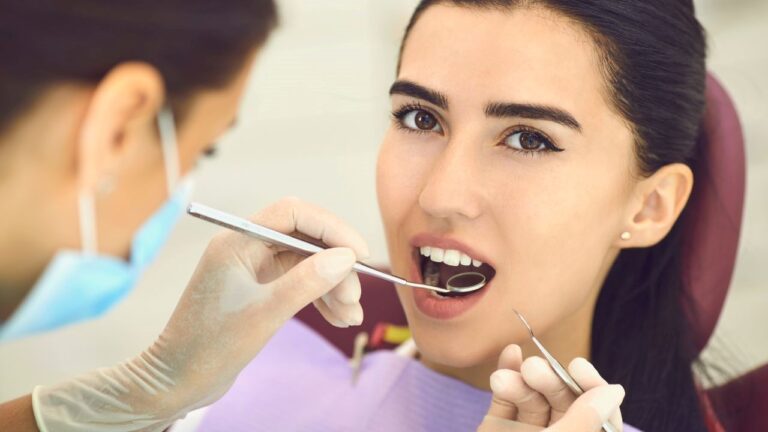Stress and Why it Makes Your Skin Break Out
Do you think stress is making your skin break out? It might be! In this blog, we’ll uncover the science behind how stress triggers blemishes, identify the types of skin conditions that can result, and help you recognize the signs when stress might be the primary cause. We’ll also talk about how to calm your skin during these times, just in case the breakouts are adding to your stress.
The Science Behind Stress-Induced Breakouts
Stress is a formidable force that can leave no part of the body untouched. It’s not merely a mental phenomenon; it’s a physical one as well. When we encounter stress, our bodies react in various ways, and these reactions can significantly influence our skin. It’s like a chain reaction set in motion by our brain’s stress response. As our bodies prepare to confront or flee from a stressful situation, our heart rate may increase, our muscles may tense up, and even our breathing might become more rapid. These physical changes are part of our body’s defense mechanism, but they can also impact our skin. Increased blood flow to the skin, for example, can make it more sensitive and prone to various issues.
The Influence of Stress Hormones on Skin Health
One of the key players in the stress-skin connection is cortisol, often dubbed the “stress hormone.” When our bodies are under stress, they release cortisol into the bloodstream, which can have a significant impact on our skin health. Cortisol encourages the production of sebum, the skin’s natural oil. While sebum is essential for skin health, excessive production due to stress can lead to clogged pores and acne breakouts. Additionally, cortisol can weaken the skin’s natural barrier, making it more susceptible to irritants and allergens, potentially triggering or worsening conditions like eczema and psoriasis. So, when stress hormones come into play, our skin can react in ways that are far from glowing.
Understanding Inflammation in Skin Conditions
Inflammation is a critical part of our body’s immune response, but when it goes awry, it can wreak havoc on our skin. Stress is known to promote inflammation, and this inflammatory response can manifest as redness, swelling, and discomfort on the skin’s surface. When it becomes chronic, stress-induced inflammation can exacerbate various skin conditions, including acne, rosacea, and hives. For those already dealing with skin sensitivities, stress can act as a trigger, intensifying these conditions and making them more challenging to manage. Understanding the role of inflammation in skin problems is a crucial step in grasping how stress can lead to those unexpected and often unwelcome breakouts.
Types of Stress-Related Skin Breakouts
Acne and Stress
When it comes to stress-related skin issues, acne often takes center stage. The connection between stress and acne is well-documented. Stress hormones, such as cortisol, can stimulate the oil glands in our skin, leading to an increase in sebum production. This excess oil can clog pores and create a breeding ground for acne-causing bacteria. For those who are already prone to acne, stress can exacerbate breakouts and make them more challenging to manage.
Eczema and Psoriasis Flare-Ups
Stress can also trigger or worsen skin conditions like eczema and psoriasis. These conditions are characterized by inflammation and immune system dysfunction. When stress-induced inflammation flares up, it can lead to redness, itching, and discomfort associated with eczema and psoriasis. Stress may not be the sole cause of these conditions, but it can certainly aggravate symptoms and make them more persistent.
Hives and Stress-Induced Rashes
Hives, those itchy and sometimes painful welts that appear suddenly on the skin, can be a direct response to stress. When we’re stressed, our bodies release histamines, which can lead to the development of hives. These stress-induced rashes can come and go quickly but can cause considerable discomfort during their brief stay.
Cold Sores and Stress
If you’ve ever experienced a cold sore during or after a stressful period, you’re not alone. Stress can weaken the immune system, making it easier for the herpes simplex virus (HSV) to reawaken and cause cold sores. These painful and unsightly sores often appear around the lips and can be triggered or exacerbated by stress.
Recognizing When Stress Is the Culprit
Recognizing stress-related triggers for skin breakouts can be a valuable skill. These triggers can vary widely from person to person but often include factors like work-related stress, personal conflicts, financial worries, or major life changes. Paying attention to when your skin issues tend to flare up and examining potential stressors in your life can help you pinpoint the connection.
Understanding the Difference Between Stress-Induced and Other Breakouts
Differentiating between stress-induced breakouts and other types of skin issues is crucial for effective management. Stress-related breakouts often have distinct characteristics, such as sudden onset during stressful periods, a tendency to appear in specific areas (like the forehead, chin, or cheeks for acne), and a correlation with stress triggers. Understanding these distinctions can help you tailor your skincare and stress management strategies more effectively.
Coping Strategies for Stress-Induced Skin Breakouts
Managing stress effectively is paramount in minimizing its impact on your skin. Explore stress management techniques such as mindfulness meditation, deep breathing exercises, yoga, or progressive muscle relaxation. These practices can help you stay grounded and reduce the physiological response to stress, which, in turn, benefits your skin.
Skincare Tips for Stress-Prone Skin
Tailoring your skincare routine to address stress-prone skin is a proactive step. Opt for gentle, fragrance-free skincare products suitable for sensitive skin. Avoid harsh exfoliants or abrasive treatments that can exacerbate irritation. Hydration is key, so choose moisturizers that provide ample hydration without clogging pores. Additionally, incorporate products with soothing ingredients like aloe vera or chamomile to calm stressed skin.
Self-Care Practices to Reduce Stress and Improve Skin Health
Self-care is a powerful tool in managing stress and promoting skin health. Prioritize adequate sleep to allow your skin time to regenerate. Maintain a balanced diet rich in antioxidants, vitamins, and hydration, as nutrition plays a vital role in skin resilience. Engage in regular physical activity to relieve stress and enhance circulation, benefiting your skin’s overall vitality. Don’t underestimate the power of connecting with loved ones and seeking emotional support when needed, as strong social bonds can buffer the effects of stress. Ultimately, practicing self-care is a holistic approach that harmonizes both your mental well-being and skin health.
When to Consult a Dermatologist
Knowing when to seek professional help from a dermatologist is essential. If stress-related skin issues persist, worsen, or significantly impact your quality of life, it’s time to consult a dermatologist. Dermatologists are trained to diagnose and treat a wide range of skin conditions, including those triggered or exacerbated by stress.
Dermatologists offer a variety of treatments tailored to address stress-related skin conditions. These may include prescription medications, topical treatments, and lifestyle recommendations. Dermatological interventions can help manage symptoms and improve skin health, but they often work best when combined with stress management strategies.
If you have any doubts at all, you can also just proceed right to the dermatologist, especially if your skin itself is causing you stressed. They’ll help you find the right solutions and break the cycle of breakouts.


